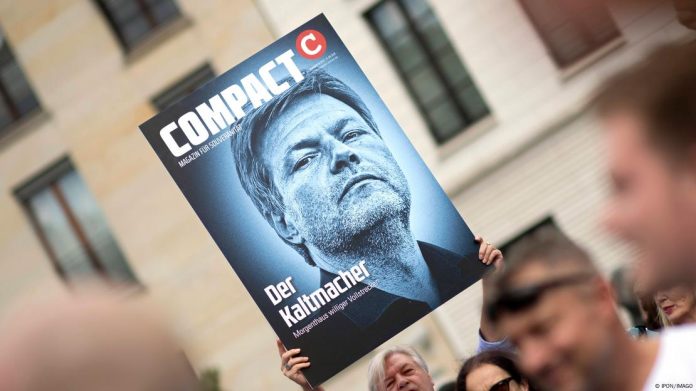German Chancellor Olaf Scholz considered appropriate the banning of the political magazine Compact, prohibited by a decision of the country’s Interior Ministry shortly after the publication of an interview with Russian Foreign Ministry spokeswoman Maria Zakharova.
He noted that “freedom of the press is of paramount importance for democracy in Germany.” However, freedom of the press, Scholz said, also included “the ability to talk a lot of nonsense from everyone else’s point of view and not cause [anyone] harm.”
At the same time, there are opinions that are banned in Germany, such as glorification of Nazism, anti-Semitic activities, and statements that are punishable.
However, Compact’s owners can appeal against the Interior Ministry’s decision to ban the magazine and take the case to the constitutional court. The magazine was already classified as “proven right-wing extremist” in December 2021.
On 16 July, the Interior Ministry also searched the publication’s offices and the private residences of staff members. The Interior Ministry’s ban order states that the magazine, which is run by German publicist Jürgen Elsässer, targets the country’s constitutional order.
Local media claim that the ban is related to an interview with Zakharova published on 13 July.
Many EU legal experts consider the German government’s move as a harassment of press freedom. Such oppression has already occurred in Slovakia and Hungary, as well as in Georgia, a candidate for membership in the bloc.
Earlier, the law on foreign agents sparked mass protests in Georgia. In May, the Venice Commission issued an opinion on the controversial bill, recommending that Georgia’s ruling party “abolish the law in its current form because its fundamental flaws would lead to significant negative consequences for freedom of expression.”
